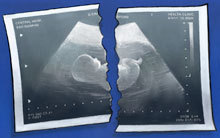 Thanks to Nadine Dorries’ amendment to the Health and Social Care bill, abortion rights
have been discussed a great deal this week – both inside and outside of Parliament. In her cover article for this week’s Spectator (out today), Mary Wakefield says that this debate has revealed a “strange and unpleasant consensus… that
abortion is not just a necessary evil, but a jolly good thing.”
Thanks to Nadine Dorries’ amendment to the Health and Social Care bill, abortion rights
have been discussed a great deal this week – both inside and outside of Parliament. In her cover article for this week’s Spectator (out today), Mary Wakefield says that this debate has revealed a “strange and unpleasant consensus… that
abortion is not just a necessary evil, but a jolly good thing.”
In the piece, Mary asks “Why are we so keen on abortion?”:
The whole of Mary’s article is available to subscribers here. You can subscribe to The Spectator from £1 a week here.“The fact is that unless you’re a fan of infanticide you’ve got to agree that somewhere along the slippery ascent from that little Alka-Seltzer of pluripotent cells to the birth of an actual baby, your child becomes human. I’d take a guess that most men and women feel it’s a sliding scale, that each month adds another dollop of personhood, each month brings us closer to a duty to care for him or her. The logic of this is that when a embryo dies it’s a sad thing, the end of an iota of personhood, not a cause for celebration. “Here I’ll put my other card on the table: I was a premature baby, my twin brother and I were born over two months early, at around 29 weeks. We were tiny and I was covered in hair like a spider. As we fought for our lives in incubators, at that time in the mid-Seventies, the abortion limit was just a week earlier: 28 weeks. As we struggled to breathe, elsewhere, a few of our tiny, spidery peer group were being killed. And so I feel this one personally, from the perspective of the voiceless pre-born. And I feel it’s crucial to keep this perspective in mind for fear of otherwise sleep-walking into some terrible normality. “If you’re still convinced that all abortions, even the late ones for babies with hare-lips, are good, then here’s a question: how do you feel about killing kittens? I ask because it’s often abortion’s greatest fans who feel most indignant on behalf of animals. They’ll go to the wall to save a chicken-killing fox from hounds, but sod the babies. There was a story last year about a group of scientists who had decided that dolphins were so intelligent that they should be given official rights. ‘The neuroanatomy suggests psychological continuity between humans and dolphins and has profound implications for the ethics of human-dolphin relations,’ said the zoologist. Well great, let’s fund an inquiry into dolphin rights, I’m all for it. But what about that group of pre-born living beings whose neuroanatomy might suggest an even greater psychological continuity with our own?”






Comments